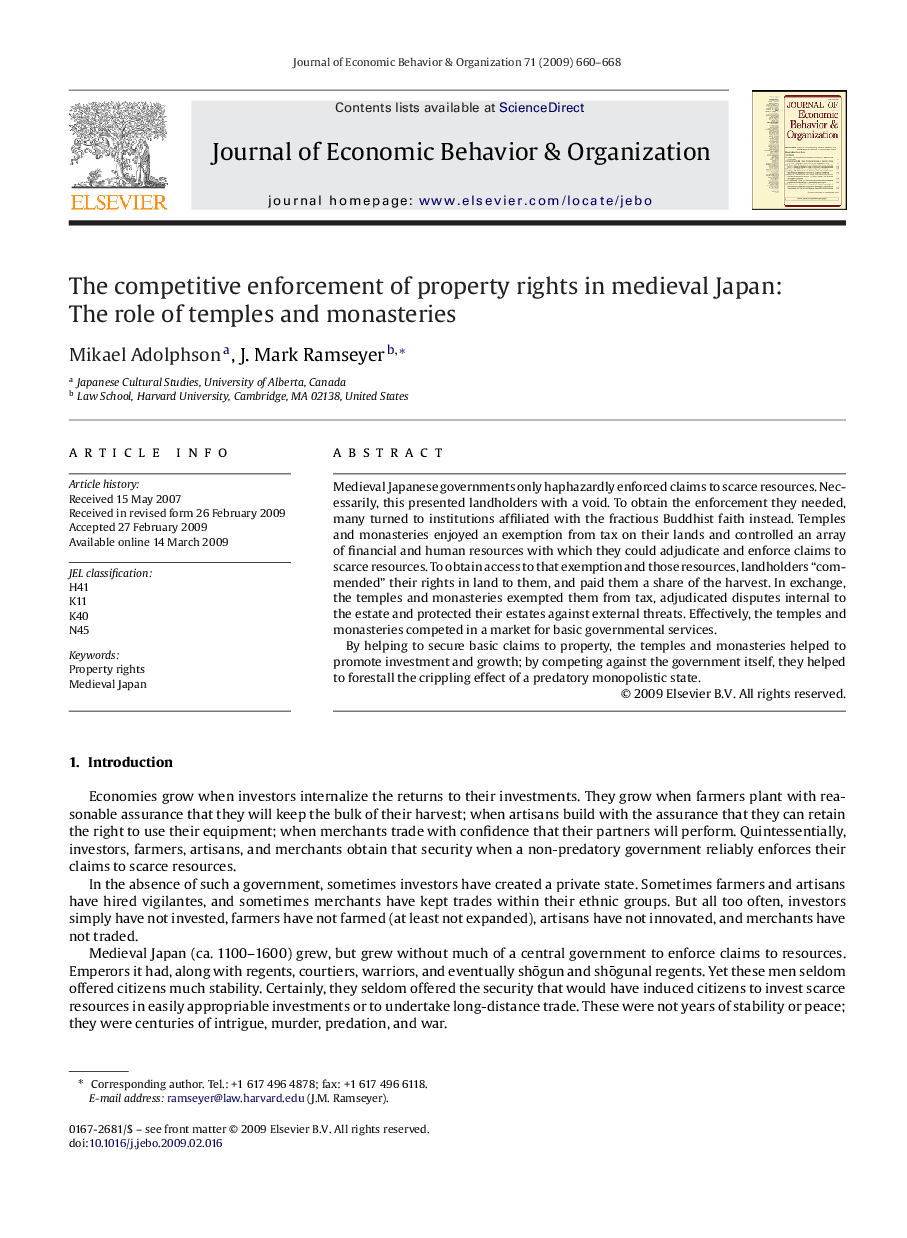| کد مقاله | کد نشریه | سال انتشار | مقاله انگلیسی | نسخه تمام متن |
|---|---|---|---|---|
| 884302 | 912383 | 2009 | 9 صفحه PDF | دانلود رایگان |

Medieval Japanese governments only haphazardly enforced claims to scarce resources. Necessarily, this presented landholders with a void. To obtain the enforcement they needed, many turned to institutions affiliated with the fractious Buddhist faith instead. Temples and monasteries enjoyed an exemption from tax on their lands and controlled an array of financial and human resources with which they could adjudicate and enforce claims to scarce resources. To obtain access to that exemption and those resources, landholders “commended” their rights in land to them, and paid them a share of the harvest. In exchange, the temples and monasteries exempted them from tax, adjudicated disputes internal to the estate and protected their estates against external threats. Effectively, the temples and monasteries competed in a market for basic governmental services.By helping to secure basic claims to property, the temples and monasteries helped to promote investment and growth; by competing against the government itself, they helped to forestall the crippling effect of a predatory monopolistic state.
Journal: Journal of Economic Behavior & Organization - Volume 71, Issue 3, September 2009, Pages 660–668